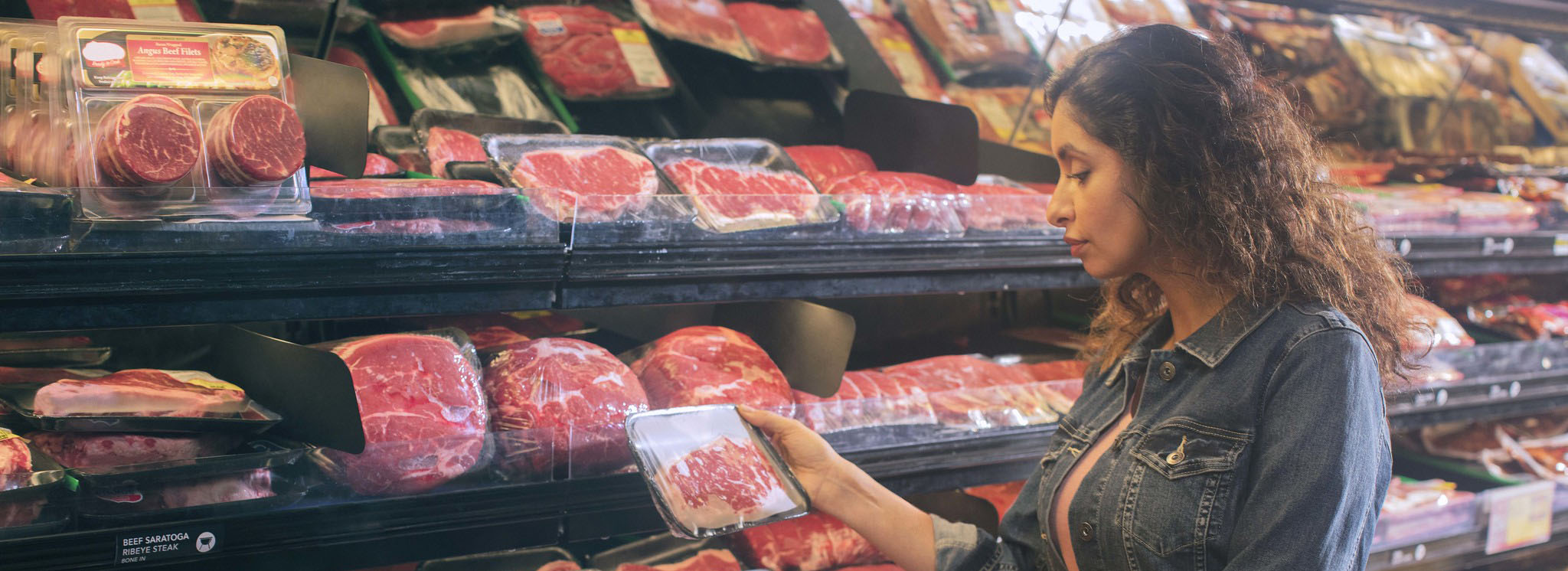
While it may be useful to share scientific information with consumers at times, Glenn Brunkow says its essential for farmers and ranchers to develop an honest relationship with local customers before supplying them technical knowledge. | Download photo
Kansas Producer: Transparency generates a positive perception of agriculture
Former K-State extension agent lays out best ways for local producers to talk about agriculture
At a glance: Glenn Brunkow, former K-State extension agent and current owner of Brunkow Family Lamb, highlights multiple advocacy techniques and conversation points producers can use to shed more positive light on agriculture.
More information: Glenn Brunkow, 785-458-8282, gbrunkow@gmail.com
Related: Kansas Farm Bureau
June 13, 2024
By Jacob Klaudt, K-State Research and Extension news service
MANHATTAN, Kan. – Most direct interactions between agriculturists and consumers occur at local farmer's markets. This interface allows urbanites to purchase nutritious food, create lasting relationships with producers and raise questions about agricultural production.
Former Kansas State University extension agent and current owner of Brunkow Family Lamb, Glenn Brunkow, sells protein directly to consumers at farmer’s markets in the greater Manhattan area.
“Farmer’s markets are a great way for consumers to meet us. We take care of any fears and answer questions they might have about agriculture. You get to become a trusted resource for them,” he said.
Recently, the industry has entered a unique period concerning consumer awareness of agriculture, according to Brunkow.
“It’s kind of a mixed bag,” he said. “They’re more informed than ever before, but oftentimes, the information they’re getting isn’t completely correct. Everyone knows the internet can be a source of good or bad information. I encounter both when I run into consumers.”
Bruknow urges farmers and ranchers who market their products locally to be transparent with purchasers.
“I think it's very important that we're completely honest and upfront with anybody that asks questions,” he said. “A lot of our lamb competitors are organic and grass-fed. My product is fed grain, and I will use antibiotics if necessary. I’m open about that.”
These conversations can benefit non-rural individuals and producers alike, Brunkow said.
“They’re great feedback for me. If I can't explain, describe and feel good about what I'm telling them, I need to take a deeper look at my operation. It’s a two-way street, and we also need to listen,” he said.
Producers can be forthright with their customers in other ways besides conversation.
Brunkow said: “We open our farm up to any of our customers at any time. Especially when we lamb, we encourage them to come out, watch and see what we're doing.”
The most frequent questions Brunkow receives at farmer’s markets revolve around animal husbandry.
“They want to know what we feed them, if we have treated them with antibiotics and if we follow all the withdrawal periods,” he said.
A common reservation shoppers have about purchasing protein includes the humane treatment of meat animals. Brunkow said producers need to capitalize on their credibility with the public to ensure they know that animal welfare ranks at the top of their priorities.
“I've seen polls that say farmers and ranchers are some of the most trusted professionals. We need to make sure that we use that to tell our story and to let people know how much we care for our animals,” he said.
The environmental sustainability of meat animal production has become another big concern for consumers.
“I tell people that my ewes graze places that we can’t raise crops on. I explain to them that the air, water and land that I'm on are very important to me,” Brunkow said. “I'm a fifth-generation rancher and I’m trying to make sure that our operation is around for the sixth.”
More information on ways that Kansans represent agriculture in the state is available online from the Kansas Farm Bureau.
***

K‑State Research and Extension is a short name for the Kansas State University Agricultural Experiment Station and Cooperative Extension Service, a program designed to generate and distribute useful knowledge for the well‑being of Kansans. Supported by county, state, federal and private funds, the program has county extension offices, experiment fields, area extension offices and regional research centers statewide. Its headquarters is on the K‑State campus in Manhattan. For more information, visit www.ksre.ksu.edu. K-State Research and Extension is an equal opportunity provider and employer.